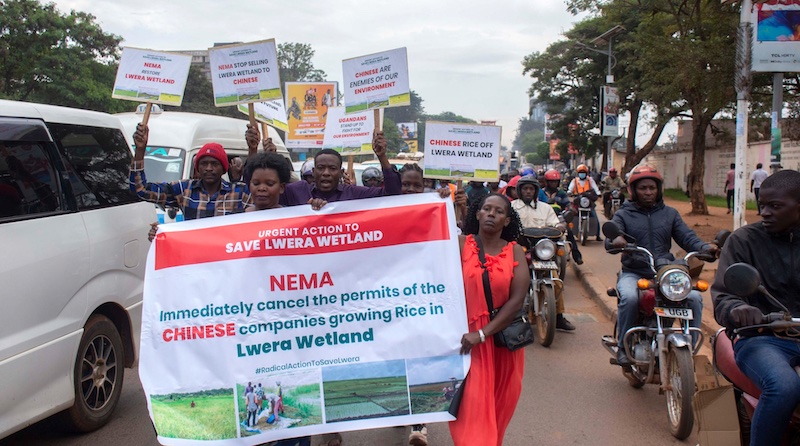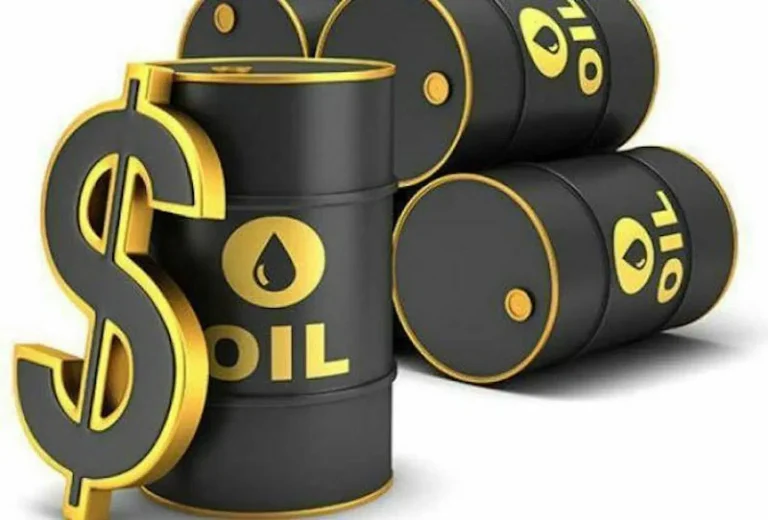
Last week in Kampala, the chants of “Save Lwera wetland!” broke through the usual city bustle.
Eight environmental activists, carrying hand-painted banners, gathered outside the National Environment Management Authority (Nema) headquarters, demanding an end to what they called “state-backed destruction” of one of Uganda’s most vital wetlands.
Within minutes, police trucks rolled in. The protest lasted barely an hour before all the eight activists were arrested. “It was a group of eight protestors. They were arrested and charged on allegations of public nuisance,” confirmed Luke Oweyesigyire, deputy spokesperson of Kampala Metropolitan Police.
But behind the arrests lies a story far larger than a small protest, a story of environmental collapse, corporate greed and official silence. The Lwera Wetland, stretching nearly 20 kilometres along the Kampala–Masaka highway, is one of Uganda’s most critical ecological buffers.
It filters water flowing into Lake Victoria and protects communities downstream from flooding. But over the past decade, it has been carved up and scarred by sand mining, rice cultivation, and illegal construction, transforming once-green marshland into a muddy expanse of open pits and stagnant pools.
Joachim Mumbere, executive director of Weka Afri Sustainable Biodiversity and Food Security Foundation, led the petitioners who confronted Nema last week. He says the wetland’s degradation is destroying livelihoods and endangering health in nearby villages.
“When they mine sand, they leave behind deep pits,” Mumbere said. “When it rains, these fill with water and cause flooding in the surrounding communities.”
He added that the chemicals used in large-scale rice farming are making residents sick. “On the days when they spray the farms, everyone catches the flu, the whole village. The air becomes toxic,” he said. “Lwera is no longer a wetland. It’s a construction site wearing the face of tragedy.”
LICENSED DESTRUCTION?
Mumbere and other activists claim that many of the companies responsible for the damage operate with licenses from Nema and are protected by the army. Attempts to get a response from Nema went unanswered.
This is not the first time questions have been raised about the agency’s role in the destruction of Lwera. In past investigations, only three companies were found to hold valid licenses for sand mining.
Yet reporters discovered at least six other firms operating illegally, some allegedly owned by politically connected individuals. Several of those operators reportedly possess land titles, something that should be impossible in protected wetlands.
“We have seen Nema evict people from Lussanja and Lubigi wetlands,” Mumbere said.
“Why is it that when it comes to Lwera, they turn a deaf ear?” The Lwera controversy dates back years. During his 2020 campaign, President Yoweri Museveni vowed to cancel all land titles issued in wetlands, including those in Lwera.
“Those that acquired titles in Lwera, they are going to be cancelled,” he said then. “No one is allowed to own land in wetlands.”
Five years later, the titles remain. Trucks still haul sand out of the wetland daily, and new rice farms continue to expand into protected zones. Environmental experts warn that continued encroachment could permanently alter the region’s ecosystem.
Lwera is not only a water filter and flood buffer, it’s a breeding ground for fish that feed Lake Victoria and a natural sponge that regulates rainfall and soil fertility. Losing it, they say, will have cascading effects on agriculture, fisheries and local weather patterns.
Mumbere says the struggle to save Lwera is not only about the environment; it’s also about courage.
“The locals are intimidated and oppressed,” he said. “The army guards the investors, and those who speak out are threatened or arrested.”
His words were underscored days later when the eight activists arrested at Nema were remanded to prison until November 4.
Human rights advocates say the arrests reflect a broader pattern of shrinking civic space in Uganda, where environmental and land activists increasingly face harassment for challenging powerful economic interests.
As Uganda pushes forward with infrastructure expansion and industrial growth, wetlands like Lwera have become collateral damage, exploited for sand, drained for rice, and parcelled out for profit.
For activists like Mumbere, the fight for Lwera is a test of whether Uganda can still protect its natural heritage from the very institutions meant to guard it.
“We are not against development,” he said quietly. “We are against destruction disguised as progress.”
In the flooded fields of Lwera, the rain still falls. The wetlands still breathe, for now. But each passing season, their silence grows heavier. And so does the question at the heart of Uganda’s environmental struggle: who will speak for the land when even the protectors fall silent?



